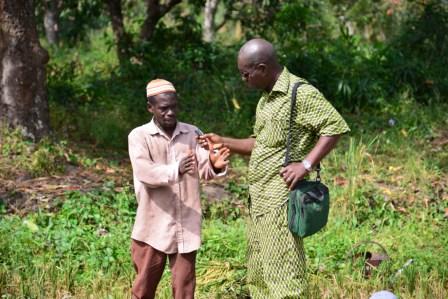Collaborative Change Communication is an initiative aimed at sharing knowledge and increasing learning opportunities and collaboration in the area of communication for rural development.
CCComDev aims to create a global community of practice and strengthen partnerships among a variety of rural actors including farmer organizations, community media, rural institutions, universities, research organizations, and development and communication practitioners.
Communication for Rural Development
- “Communication for Development (ComDev) is a social process based on dialogue using a broad range of tools and methods. ComDev is about seeking change at different levels including listening, establishing trust, sharing knowledge and skills, building policies, debating and learning for sustained and meaningful change” (WCCD, 2006)
The rural sector is confronted by an increasing demand for information and knowledge to face compelling challenges such as climate change, natural hazards and food shortage. ComDev combines participatory methods and communication tools to facilitate access to information and increase farmers’ participation in rural development initiatives. What makes ComDev unique is the focus on people’s empowerment through dialogue, knowledge sharing and mutual learning rather than on media and technologies.
Strengthening ComDev capacity of rural actors
The World Congress, the UN Roundtables and the FAO Expert Consultation on ComDev have underlined the need for sound communication capacities. In response to this need, FAO ComDev team in collaboration with the College of Development Communication of UPLB launched in 201 the project “Collaborative Change Communication: learning and sharing in communication for rural development”. The project resulted in:
- Assessment of learning needs and mapping of training opportunities in ComDev;
- Design and production of a comprehensive Communication for Rural Development Sourcebook; and
- Establishment of CCComDev as a web-based platform & community for learning and knowledge sharing.
This initiative has led to concrete collaborations in terms of curricula development and training initiatives, also in collaboration with other partner universities and organizations.

